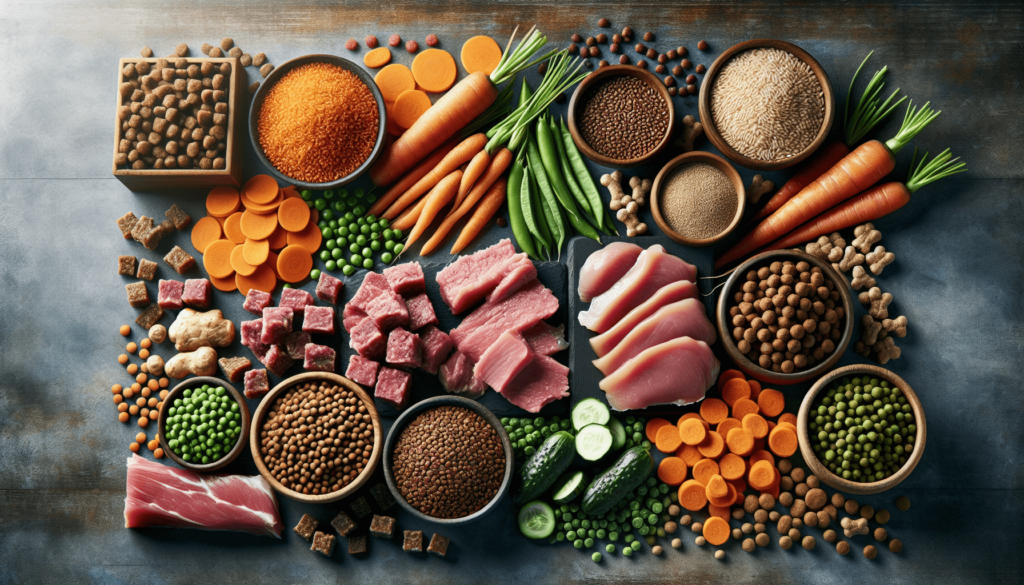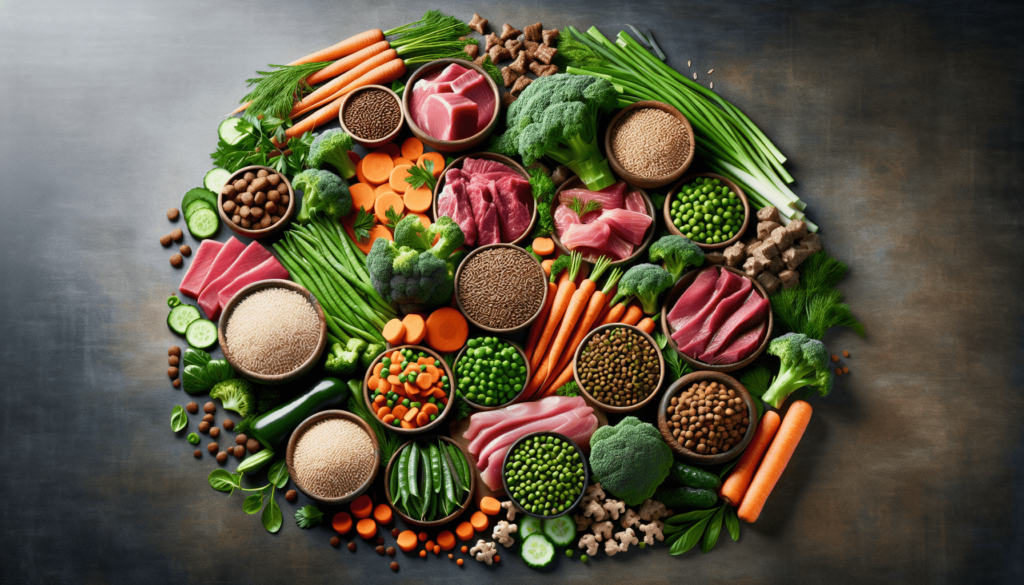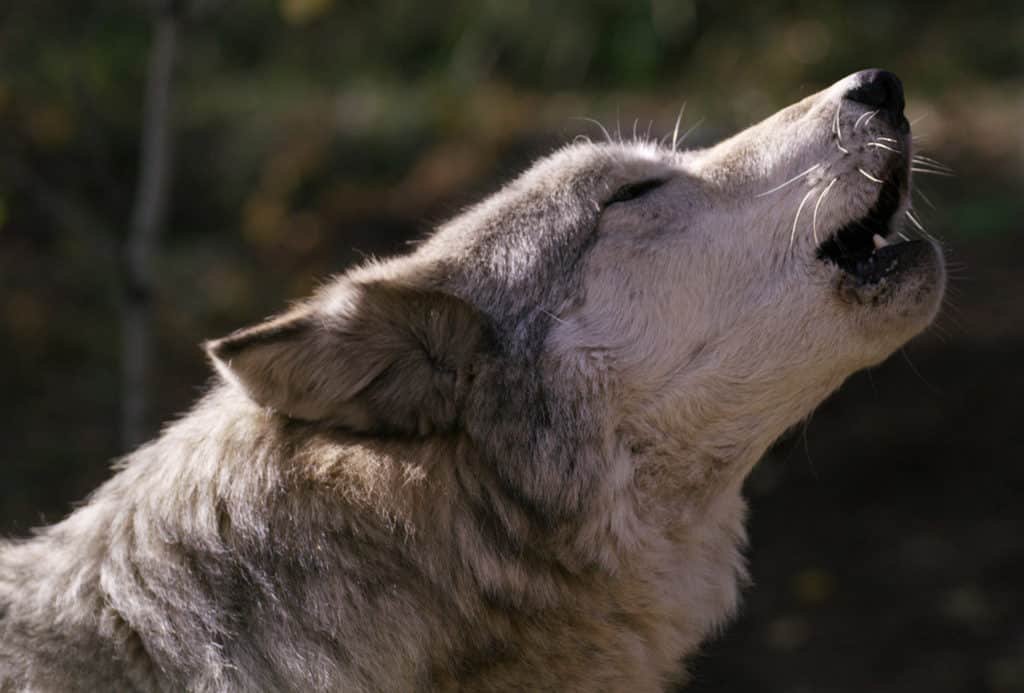What are the best dog foods for active or working dogs? As a devoted dog owner or someone who works closely with these high-energy animals, you’ve likely pondered this age-old question. These remarkable creatures provide us with companionship and sometimes even play essential roles in our daily lives, from herding livestock to assisting search and rescue missions. Therefore, ensuring they receive proper nutrition is paramount to support their demanding lifestyles.

Understanding the Nutritional Needs of Active and Working Dogs
Active and working dogs have unique dietary requirements compared to their more sedentary counterparts. Their high activity levels and roles often require a specific balance of nutrients to maintain optimal health, performance, and energy levels. Imagine a marathon runner trying to sustain with an ordinary diet—the result would likely be fatigue and declining performance. Similarly, these exceptional dogs need specialized fuel to thrive.
Why Protein is Crucial
In the world of canine nutrition, protein reigns supreme, particularly for active and working dogs. These animals rely on protein to build and repair muscles, maintain healthy skin and fur, and support overall resilience. High-quality sources such as chicken, beef, and fish provide the essential amino acids that are the building blocks of muscle, which, in turn, allows these dogs to perform tasks with vigor and efficiency.
The Role of Fats in Their Diet
While fats often get a bad rap, they’re an indispensable component of the diet for dogs with high energy needs. Dietary fats supply concentrated energy, ensuring these dogs have the stamina needed for prolonged activity. Omega-3 and Omega-6 fatty acids, found in ingredients like fish oil and flaxseed, also support joint health and cognitive function, enhancing a dog’s performance and overall well-being.
Carbohydrates: Energy and Endurance
Though not as emphasized as proteins and fats, carbohydrates are still critical. They offer a readily available energy source that helps sustain long periods of exertion. Whole grains like brown rice and oats, as well as sweet potatoes, can provide the necessary fuel for keeping active and working dogs on their toes.
Selecting the Best Dog Food
Choosing the right dog food for your active or working dog requires not only understanding nutritional needs but also scrutinizing ingredient lists and brand reputation. There are several factors to consider, and navigating these choices can be overwhelming, but fear not! With a bit of guidance, you can make informed decisions that will benefit your canine companion.
Reading the Labels
When it comes to selecting a worthy dog food, don’t underestimate the power of a label. Look for products that list high-quality protein sources as the first ingredient. Avoid by-products or vague ingredients like “meat meal” or “animal fat.” A good rule of thumb is to choose foods with recognizable, whole-food ingredients.
Trust in Brand Reputation
Not all dog food brands are created equal, and picking a reputable brand can make a world of difference for your dog’s health. Opt for brands that have undergone rigorous testing and have a history of veterinary nutrition support. Brands that use sustainable and ethical sourcing practices are also worth considering.
Considering Grain-Free Options
The question of grain-free diets remains a hot topic. While some dog owners advocate for grain-free options due to potential allergies or sensitivities, it is essential to evaluate your individual dog’s needs. Some dogs thrive on grains, provided they are whole and minimally processed. Consulting with a veterinarian can help address any specific concerns regarding grain in your dog’s diet.

Top Recommended Foods for Active and Working Dogs
Navigating the myriad of dog food options can be challenging. Let’s break down some of the best dog foods available for active and working dogs, considering their unique nutritional requirements.
Orijen Original
Widely regarded for its biologically appropriate food for dogs, Orijen Original is packed with high levels of animal protein. Featuring sources like chicken, turkey, and fish, Orijen satisfies both protein and fat needs effectively. It excludes grains, providing energy through low glycemic fruits and vegetables.
Taste of the Wild High Prairie
Taste of the Wild High Prairie offers a rich protein-packed formula ideal for active dogs. With buffalo and bison as primary ingredients, it supports muscle maintenance and repair. It also includes sweet potatoes and peas, fulfilling carbohydrate requirements for lasting energy.
Blue Buffalo Wilderness
The Blue Buffalo Wilderness line uses high-quality chicken as the first ingredient, focusing on high protein content for active dogs. This food also contains omega-3 and omega-6 fatty acids for skin and coat health. Additionally, it provides antioxidants through fruits and vegetables, bolstering the immune system.
Victor Hi-Pro Plus
Victor Hi-Pro Plus is renowned for supporting the nutritional demands of sporting dogs. It contains a mix of beef, chicken, pork, and fish meals, leading to a balanced amino acid profile. The inclusion of complex carbohydrates like sorghum supplies energy without spikes in blood sugar.
Eukanuba Premium Performance
Eukanuba’s Premium Performance range caters explicitly to active and working dogs. It offers a unique blend of nutrients including enhanced protein and fat levels, as well as glucosamine and chondroitin for joint health. This blend maximizes endurance and ensures a well-rounded diet.
| Brand | Primary Protein Sources | Key Nutritional Highlights |
|---|---|---|
| Orijen Original | Chicken, Turkey, Fish | High animal protein, low glycemic fruits |
| Taste of the Wild | Buffalo, Bison | Grain-free, high protein, sweet potatoes |
| Blue Buffalo Wilderness | Chicken | Omega fatty acids, fruit and veggie antioxidants |
| Victor Hi-Pro Plus | Beef, Chicken, Pork, Fish | High protein, complex carbs like sorghum |
| Eukanuba Performance | Chicken | Enhanced protein/fat, joint health support |
Adapting to Unique Dietary Needs
While pre-packaged commercial foods offer convenience, some dog owners opt to tailor their dog’s diet even further by preparing homemade meals or adding supplements. Whether dealing with specific health issues or just ensuring peak performance, individualized diets can address unique requirements when approached with care.
Homemade Diets: A Customized Approach
If considering a homemade diet, it’s vital to include adequate proportions of protein, fats, carbohydrates, vitamins, and minerals. Consulting a veterinary nutritionist to develop a balanced meal plan is essential to avoid nutritional deficiencies.
Navigating Supplement Options
Supplements can be beneficial for targeting particular health concerns or performance goals. Glucosamine for joint support, probiotics for digestion, and fish oil for skin health are popular choices among owners of active dogs. However, always discuss with a veterinarian before introducing new supplements to ensure they complement rather than hinder your dog’s diet.
Monitoring and Adjusting Your Dog’s Diet
Just as in human nutrition, active and working dogs may require periodic adjustments to their diet based on factors such as age, weight, and activity level. Being observant and responsive to changes in your dog’s energy levels, coat condition, and overall health will help you determine if their dietary needs are being met.
Signs of Proper Nutrition
A dog receiving appropriate nutrition will exhibit several telltale signs: a shiny coat, good muscle tone, healthy weight, and steadfast energy. Consistent digestive health, marked by regular and firm stools, is another indicator of a well-balanced diet.
When to Reassess
Certain circumstances may prompt a reassessment of your dog’s diet. Increased or decreased activity levels, aging, or unexpected health issues could necessitate dietary adjustments. An open line of communication with your veterinarian and periodic health checks remain critical in these scenarios.
FAQ
What are the best dog foods for active or working dogs?
Selecting the best dog food depends on understanding their high protein and fat requirements, sourced from brands like Orijen, Taste of the Wild, and Eukanuba Performance.
Should I choose grain-free dog food?
It depends on your dog’s specific needs. Grain-free diets are beneficial for dogs with sensitivities, but it’s crucial to consult with a veterinarian.
How can I tell if my dog food is high quality?
Look for high-quality proteins as the first ingredient, steer clear of by-products, and opt for brands with a good reputation and transparency.
Can I feed my dog a homemade diet?
Yes, with proper planning and veterinary guidance, a homemade diet can be customized to meet your dog’s nutritional needs.
Are supplements necessary for active dogs?
Supplements can help support specific health needs, such as joint or skin health, but should always be discussed with a veterinarian.
Navigating the world of dog nutrition is an ongoing journey where the ultimate goal is the well-being of your active or working dog. By being informed and vigilant, you can ensure that your canine companion remains healthy and vibrant, ready to tackle any adventure that comes their way.



